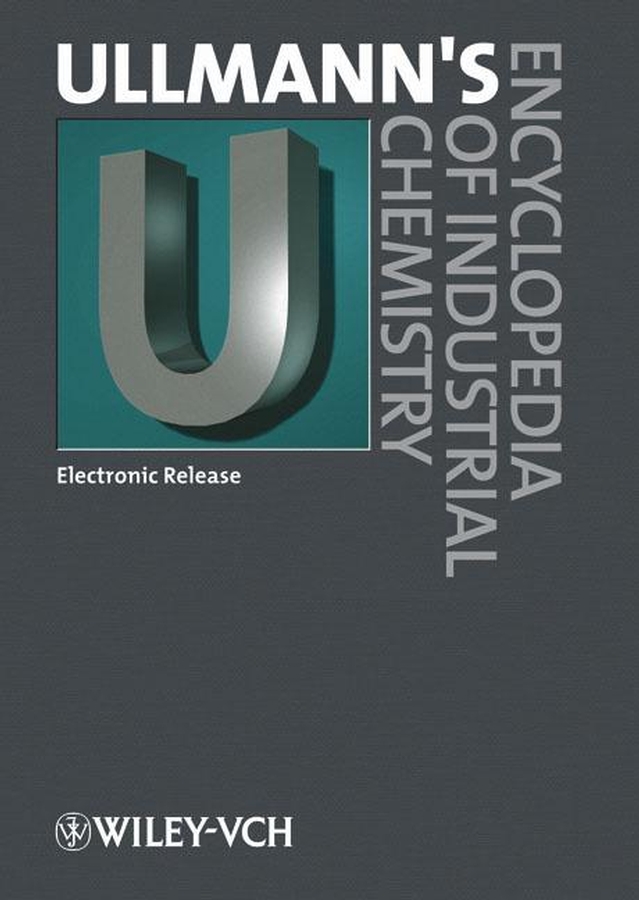Phosphoric Acid and Phosphates
Abstract
The article contains sections titled:
1. |
Monophosphoric Acid |
1.1. |
Properties |
1.2. |
Production |
1.2.1. |
Thermal Processes |
1.2.2. |
Wet Processes |
1.2.3. |
Concentration of Wet Phosphoric Acid |
1.2.4. |
Purification of Wet Phosphoric Acid |
1.3. |
Uses and Economic Aspects |
1.4. |
Environmental Aspects |
2. |
Condensed Phosphoric Acids |
3. |
Phosphates |
3.1. |
Sodium Monophosphates |
3.2. |
Condensed Sodium Phosphates |
3.2.1. |
Properties |
3.2.2. |
Metal Complexing by Phosphates |
3.2.2.1. |
Introduction |
3.2.2.2. |
Analytical Methods |
3.2.2.3. |
Complexing by Individual Phosphates |
3.2.2.4. |
Other Concepts Besides the Stability Constant |
3.2.3. |
Sodium Diphosphates |
3.2.4. |
Pentasodium Triphosphate |
3.2.5. |
Higher Condensed Sodium Polyphosphates |
3.2.6. |
Sodium Metaphosphates |
3.2.7. |
Uses of Condensed Sodium Phosphates |
3.3. |
Other Phosphates |
3.3.1. |
Potassium Phosphates |
3.3.2. |
Ammonium Phosphates |
3.3.3. |
Magnesium Phosphates |
3.3.4. |
Calcium Phosphates |
3.3.5. |
Boron Phosphate |
3.3.6. |
Aluminum Phosphates |
3.4. |
Economic Aspects |
4. |
Toxicology |



